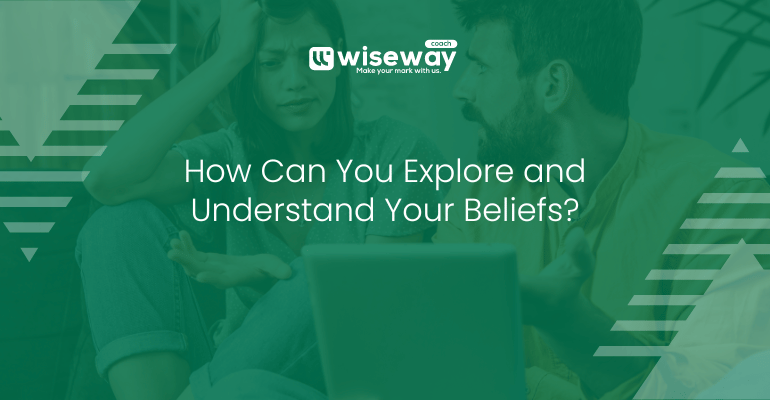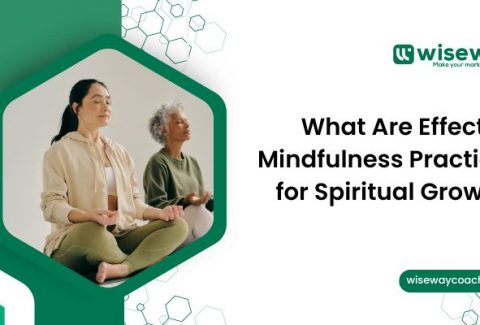How Can You Explore and Understand Your Beliefs?
July 23, 2024 2024-08-14 12:17How Can You Explore and Understand Your Beliefs?
Understanding your beliefs is a crucial part of personal growth and self-awareness. Beliefs shape your values, decisions, and interactions with others. They influence how you perceive the world and navigate life’s challenges. Exploring and understanding your beliefs can lead to greater clarity, alignment with your values, and a more authentic life. Here’s a comprehensive guide on how to explore and understand your beliefs.
1. Reflect on Your Core Values
Identify Your Core Values
Begin by identifying your core values, which are the fundamental principles that guide your actions and decisions. Core values often reflect what is most important to you and can include concepts like honesty, compassion, freedom, or success. Reflect on past experiences to determine which values have consistently influenced your choices and behavior.
Consider Influences on Your Values
Think about the influences that have shaped your values, such as family, culture, education, and personal experiences. Understanding these influences can help you see how your values have developed and how they contribute to your current beliefs. Consider whether these influences align with your current understanding of yourself and your life goals.
2. Examine Your Belief System
Identify Your Beliefs
To explore your beliefs, start by identifying what you believe about various aspects of life, such as relationships, work, society, and spirituality. Write down your beliefs and consider how they impact your daily life and decisions. Recognizing these beliefs helps you understand how they shape your worldview and behavior.
Analyze the Origin of Your Beliefs
Consider where your beliefs originated. Are they based on personal experiences, societal norms, or teachings from others? Reflect on whether these beliefs are still relevant to you or if they need reevaluation. Understanding the origin of your beliefs helps you assess their validity and relevance to your current life.
3. Challenge Your Beliefs
Engage in Critical Thinking
Challenge your beliefs by engaging in critical thinking. Question the validity and accuracy of your beliefs by examining evidence, seeking alternative perspectives, and considering counterarguments. Ask yourself whether your beliefs are based on solid reasoning or if they are influenced by biases or assumptions.
Explore Different Perspectives
Expose yourself to different viewpoints and perspectives. Read books, attend lectures, or engage in conversations with people who hold differing beliefs. Exploring diverse perspectives can help you broaden your understanding and challenge any preconceived notions. This process encourages open-mindedness and helps you refine or adjust your beliefs.
4. Practice Self-Reflection
Keep a Journal
Journaling is an effective way to explore and understand your beliefs. Write regularly about your thoughts, feelings, and experiences related to your beliefs. Reflect on how your beliefs influence your actions and interactions. Journaling helps you process your beliefs and gain insights into your inner thoughts and motivations.
Engage in Mindfulness
Mindfulness practices, such as meditation and introspection, can help you connect with your beliefs on a deeper level. Mindfulness allows you to observe your thoughts and emotions without judgment, providing clarity on how your beliefs impact your well-being. By being present with your thoughts, you can gain a better understanding of your beliefs and their significance.
5. Seek Feedback and Dialogue
Consult with Trusted Individuals
Discuss your beliefs with trusted friends, family members, or mentors. Engaging in conversations with people who understand you well can provide valuable feedback and insights. They may offer perspectives that challenge or affirm your beliefs, helping you gain a more comprehensive understanding.
Participate in Group Discussions
Join discussion groups, workshops, or forums that focus on exploring beliefs and values. Engaging in group dialogues allows you to hear diverse viewpoints and participate in collective reflections. Group discussions provide a platform for sharing ideas, learning from others, and gaining new insights into your own beliefs.
6. Evaluate and Integrate Your Beliefs
Assess Alignment with Your Goals
Evaluate whether your beliefs align with your personal goals and aspirations. Consider how your beliefs support or hinder your progress towards achieving your goals. If necessary, make adjustments to ensure that your beliefs are in harmony with your desired outcomes and life direction.
Integrate Beliefs into Daily Life
Integrate your beliefs into your daily life by aligning your actions and decisions with your core values. Practice living in accordance with your beliefs to create a more authentic and fulfilling life. Consistent alignment between your beliefs and actions enhances personal satisfaction and reinforces your sense of purpose.
7. Embrace Continuous Growth
Be Open to Change
Recognize that beliefs can evolve over time as you gain new experiences and insights. Be open to revising your beliefs and adapting to change. Embracing a growth mindset allows you to continually explore and refine your beliefs, contributing to ongoing personal development.
Commit to Lifelong Learning
Commit to lifelong learning and self-discovery. Continuously seek opportunities for growth, education, and exploration. Lifelong learning helps you stay curious, open-minded, and adaptable, supporting your journey to understand and evolve your beliefs.
Conclusion
Exploring and understanding your beliefs involves reflecting on your core values, examining your belief system, challenging your beliefs, practicing self-reflection, seeking feedback, evaluating alignment with goals, and embracing continuous growth. By engaging in these practices, you can gain deeper insights into your beliefs, align them with your values, and live a more authentic and purposeful life. Understanding your beliefs is a dynamic and ongoing process that enriches your self-awareness and personal development.

